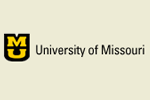Project Profile
IGERT: Neutron Scattering for the Science and Engineering of the 21st Century
University of Missouri at Columbia
Abstract
This Integrative Graduate Education and Research Traineeship (IGERT) award will implement a new paradigm for interdisciplinary training of Ph.D. students in the application of neutron scattering research within three major themes of condensed matter science.
Intellectual Merit: These themes include: 1) biological macromolecules… more »
This Integrative Graduate Education and Research Traineeship (IGERT) award will implement a new paradigm for interdisciplinary training of Ph.D. students in the application of neutron scattering research within three major themes of condensed matter science.
Intellectual Merit: These themes include: 1) biological macromolecules and biomaterials; 2) the structure and dynamics of strongly correlated electronic materials; and 3) design of artificial nanoscale materials. Fundamental research utilizing neutron scattering techniques has led to a host of technological advances in such diverse areas as drug design, the development of high-strength metals and cements, novel materials for electronic and magnetic devices, and hydrogen storage materials. Based on these achievements in science and engineering, recent progress in the design of neutron scattering instrumentation, and the potential for new discoveries, the United States has invested nearly $2B in new facilities for neutron scattering over the past decade. The proposed graduate curriculum will exploit a combined problem-based learning/writing intensive approach accessible to students from traditionally distinct disciplines. It will combine in-depth, hands-on training at our university-based neutron sources with innovative theoretical courses encompassing the three major research themes.
Broader Impacts: This project will enlarge the community of researchers capable of exploiting new neutron scattering facilities of unprecedented power just as they are coming online. The trainees will develop communication and organizational skills required for geographically dispersed teams to utilize these national facilities effectively. In addition to training leaders for future interdisciplinary university-based research, the project will provide a pool of potential users and employees of both national research facilities and highly competitive industries that depend on complex materials. The interdisciplinary curriculum is designed to attract future scientists from fields outside of physics and students from underrepresented groups.
IGERT is an NSF-wide program intended to meet the challenges of educating U.S. Ph.D. scientists and engineers with the interdisciplinary background, deep knowledge in a chosen discipline, and the technical, professional, and personal skills needed for the career demands of the future. The program is intended to catalyze a cultural change in graduate education by establishing innovative new models for graduate education and training in a fertile environment for collaborative research that transcends traditional disciplinary boundaries. « less
Contributions[?]
Project members' contributions to the library and showcase are listed here.
See All 15 Contributions »






